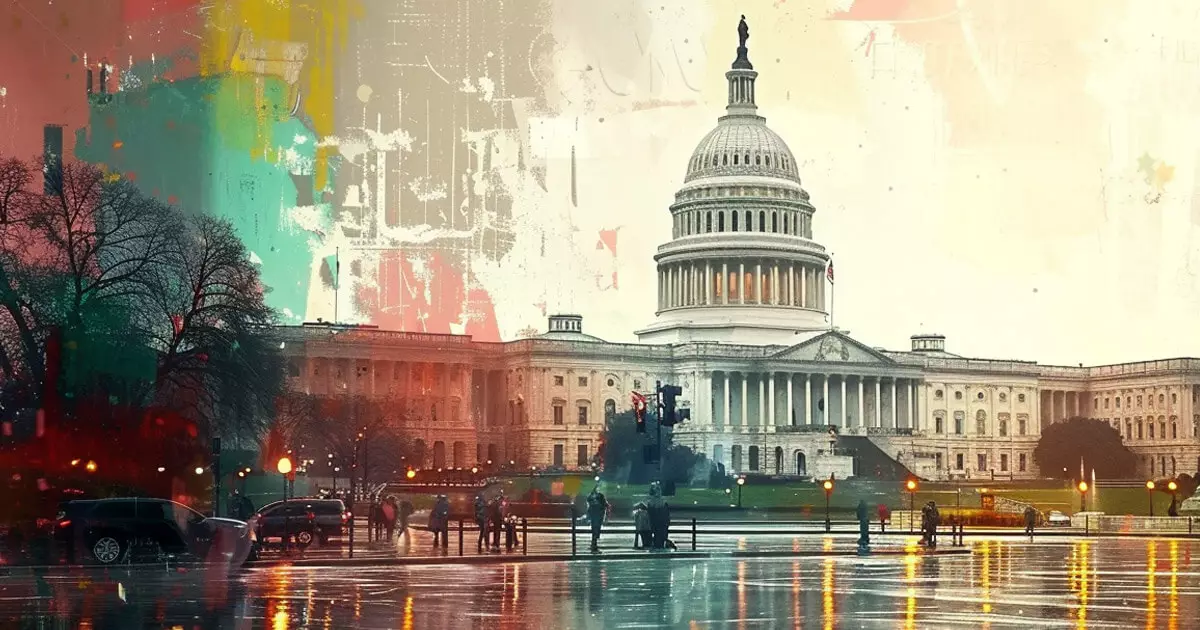The debate surrounding cryptocurrency and its intersection with traditional banking systems is gaining momentum in the U.S. Congress. Recently, Rep. French Hill has taken a stand against perceived attempts by financial regulators to sever banking relationships with cryptocurrency businesses. His assertions, built on burgeoning concerns from various industry leaders, underscore the need for a fair regulatory environment that allows legitimate businesses to thrive within the financial system. These discussions arise as Hill positions himself for a potential leadership role in the House Financial Services Committee, indicating that the legislative future of the cryptocurrency space could be at a significant crossroads.
During a recent hearing on financial technology, Hill raised pertinent issues regarding the access of cryptocurrency firms to banking services. He highlighted the need for legislative inquiry into allegations that federal regulators are effectively pressuring banks to deny services to crypto-related enterprises. This compulsion has raised eyebrows within the industry and among lawmakers, particularly after comments from Marc Andreessen, co-founder of a prominent venture capital firm, during his appearance on the Joe Rogan podcast. He claimed that actions reminiscent of “Operation Choke Point 2.0” are being employed to thwart the financial viability of crypto businesses. This term references an earlier initiative aimed at curtailing financial services to high-risk industries, fostering a climate of fear and uncertainty.
On the ground, the realities of such pressure are reflected in the testimonies given by executives from renowned organizations such as the Stellar Development Foundation and Anchorage Digital during the hearing. Their accounts reveal a troubling trend: the struggle to secure banking arrangements, often facing uncommunicated rejections with no clear rationale. Denelle Dixon, CEO of Stellar, poignantly illustrated this dilemma, recounting her experiences of reaching out to multiple banks, only to face an unwelcoming wall that hinders operational continuity.
Hill’s appeal to uphold the principles of fair access to banking services for legal industries resonates with a wider call for reform as the leadership of the House Financial Services Committee shifts. With current chair Patrick McHenry set to retire, the candidacy of Hill, alongside other pro-crypto Republicans, signifies potential changes in the committee’s approach to the burgeoning cryptocurrency sector. This transformation comes at a time when there are significant changes in the broader political landscape, notably with Donald Trump’s administration pledging to dismantle regulatory practices akin to Operation Choke Point. Such political promises have the potential to reshape not just banking practices but also the trajectory of cryptocurrency legislation in Congress.
Amidst these transformations, the topic of regulatory oversight, especially concerning stablecoins, continues to be a matter of heated debate. Lawmakers grapple with the balance between federal oversight and allowing state regulators to wield the necessary control. Hill’s optimism about finding common ground is notable, as he believes progress could be made in crypto-related legislation. This perspective is further supported by voices in Congress like Rep. Maxine Waters, who has collaborated with McHenry on a bipartisan stablecoin framework, demonstrating a willingness to foster constructive dialogue despite each party’s political affiliations.
However, as Waters notes, the crowded legislative calendar presents significant obstacles, complicating the timely resolution of these intricate issues. The convergence of support from Republican and Democratic lawmakers underscores an evolving recognition that regulation must be adaptable to the realities of the digital economy.
With the potential for new leadership within the House Financial Services Committee and a shifting political landscape, the future of cryptocurrency in the U.S. banking system remains uncertain yet optimistic. As Rep. Hill and others advocate for accessible banking services for legal enterprises, the outcomes will likely shape the regulatory framework in which cryptocurrency operates. Continuous dialogue among stakeholders will be crucial in addressing concerns about access and oversight, propelling the financial industry into a new era where innovation can flourish without the threat of unwarranted restrictions. The coming months will be pivotal, and the hope is that Congress can strike a balance between safeguarding consumers and supporting the legitimate growth of the cryptocurrency ecosystem.


















